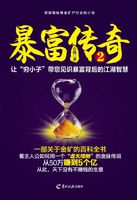Ten clergymen of various denominations were interviewed, and nine of them agreed with that verdict. That did not settle the matter, because the tenth said the language of Jesus was so strait and definite that it explained itself: "Sell all," not a percentage.
There is a most unusual feature about that dispute: the nine persons who decided alike, quoted not a single authority in support of their position. I do not know when I have seen trained disputants do the like of that before. The nine merely furnished their own opinions, founded upon--nothing at all. In the other dispute ("Did Jesus anywhere claim to be God?") the same kind of men--trained and learned clergymen--backed up their arguments with chapter and verse. On both sides. Plenty of verses. Were no reinforcing verses to be found in the present case? It looks that way.
The opinion of the nine seems strange to me, for it is unsupported by authority, while there was at least constructive authority for the opposite view.
It is hair-splitting differences of opinion over disputed text-meanings that have divided into many sects a once united Church. One may infer from some of the names in the following list that some of the differences are very slight--so slight as to be not distinctly important, perhaps--yet they have moved groups to withdraw from communions to which they belonged and set up a sect of their own. The list--accompanied by various Church statistics for 1902, compiled by Rev. Dr. H. K.
Carroll--was published, January 8, 1903, in the New York Christian Advocate:
Adventists (6 bodies), Baptists (13 bodies), Brethren (Plymouth) (4 bodies), Brethren (River) (3 bodies), Catholics (8 bodies), Catholic Apostolic, Christadelphians, Christian Connection, Christian Catholics, Christian Missionary Association, Christian Scientists, Church of God (Wine-brennarian), Church of the New Jerusalem, Congregationalists, Disciples of Christ, Dunkards (4 bodies), Evangelical (2 bodies), Friends (4 bodies), Friends of the Temple, German Evangelical Protestant, German Evangelical Synod, Independent congregations, Jews (2 bodies), Latter-day Saints (2 bodies), Lutherans (22 bodies), Mennonites (12 bodies), Methodists (17 bodies), Moravians, Presbyterians (12 bodies), Protestant Episcopal (2 bodies), Reformed (3 bodies), Schwenkfeldians, Social Brethren, Spiritualists, Swedish Evangelical Miss. Covenant (Waldenstromians), Unitarians, United Brethren (2 bodies), Universalists, Total of sects and splits--139.
In the present month (February), Mr. E. I. Lindh, A..M., has communicated to the Boston Transcript a hopeful article on the solution of the problem of the "divided church." Divided is not too violent a term. Subdivided could have been permitted if he had thought of it. He came near thinking of it, for he mentions some of the subdivisions himself: "the 12 kinds of Presbyterians, the 17 kinds of Methodists, the 13 kinds of Baptists, etc." He overlooked the 12 kinds of Mennonites and the 22 kinds of Lutherans, but they are in Rev. Mr. Carroll's list.
Altogether, 76 splits under 5 flags. The Literary Digest (February 14th) is pleased with Mr. Lindh's optimistic article, and also with the signs of the times, and perceives that "the idea of Church unity is in the air."
Now, then, is not Mrs. Eddy profoundly wise in forbidding, for all time, all explanations of her religion except such as she shall let on to be her own?
I think so. I think there can be no doubt of it. In a way, they will be her own; for, no matter which member of her clerical staff shall furnish the explanations, not a line of them will she ever allow to be printed until she shall have approved it, accepted it, copyrighted it, cabbaged it. We may depend on that with a four-ace confidence.
THE NEW INFALLIBILITY
All in proper time Mrs. Eddy's factory will take hold of that Commandment, and explain it for good and all. It may be that one member of the shift will vote that the word "all" means all; it may be that ten members of the shift will vote that "all" means only a percentage; but it is Mrs. Eddy, not the eleven, who will do the deciding. And if she says it is percentage, then percentage it is, forevermore --and that is what I am expecting, for she doesn't sell all herself, nor any considerable part of it, and as regards the poor, she doesn't declare any dividend; but if she says "all" means all, then all it is, to the end of time, and no follower of hers will ever be allowed to reconstruct that text, or shrink it, or inflate it, or meddle with it in any way at all. Even to-day--right here in the beginning--she is the sole person who, in the matter of Christian Science exegesis, is privileged to exploit the Spiral Twist.
The Christian world has two Infallibles now.
Of equal power? For the present only. When Leo XIII. passes to his rest another Infallible will ascend his throne; others, and yet others, and still others will follow him, and be as infallible as he, and decide questions of doctrine as long as they may come up, all down the far future; but Mary Baker G. Eddy is the only Infallible that will ever occupy the Science throne. Many a Science Pope will succeed her, but she has closed their mouths; they will repeat and reverently praise and adore her infallibilities, but venture none themselves. In her grave she will still outrank all other Popes, be they of what Church they may. She will hold the supremest of earthly titles, The Infallible--with a capital T.
Many in the world's history have had a hunger for such nuggets and slices of power as they might reasonably hope to grab out of an empire's or a religion's assets, but Mrs. Eddy is the only person alive or dead who has ever struck for the whole of them. For small things she has the eye of a microscope, for large ones the eye of a telescope, and whatever she sees, she wants. Wants it all.
THE SACRED POEMS















